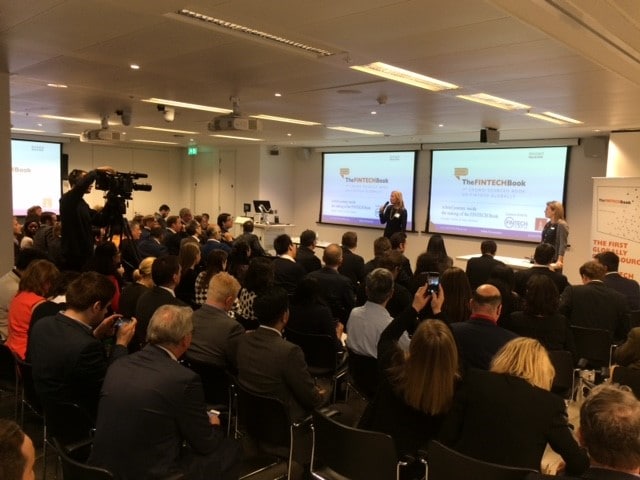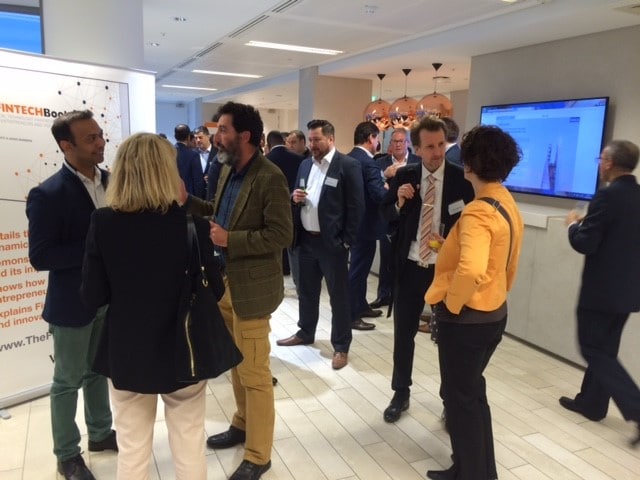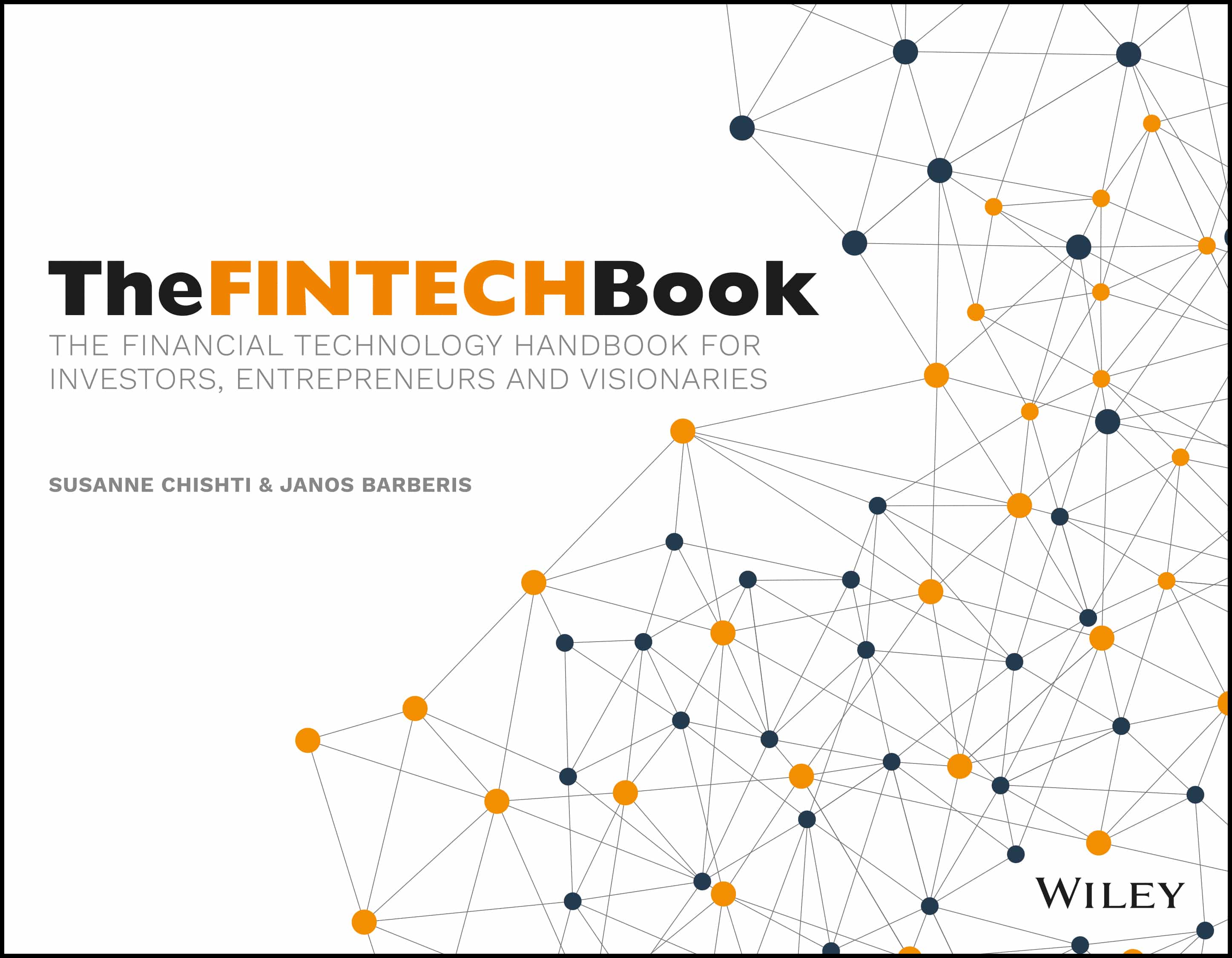The story of one particular book - The FINTECH Book, published by Wiley on the 1st of April 2016 - is outstandingly important to me on multiple levels. The deepest level is that the story of this book is a nice allegory of my personal story. Why and how?
In the world of finance we hear the bon mot 'from bricks to clicks' quite often. But now there is something new - the exact opposite - emerging: 'from clicks to bricks'. And the story of this book is a great example of this.
It all started out as a humble online project in 2015 to compile some short essays from FinTech experts and to self-publish the book on the internet.
But instead of a couple of essays, 180 very exciting abstracts flowed in to the email boxes of Susanne Chishti and Janos Barberis – the future editors – very shortly after posting this initiative on LinkedIn and Twitter. Susanne and Janos decided to organize a contest and post all 180 works on Medium and ask readers to vote for the best ones to go into the online 'book'.
Huge numbers of votes were cast and the best abstracts were thereby selected. I was very happy and proud to be voted in! Authors had to expand their abstracts into essays. As we submitted our essays it turned out that Wiley & Sons – the famous publisher – was interested in this project… and couple of months later Susanne and Janos were already distributing the contract to be signed by DocuSign.
This is how we (80 FinTech experts from all around the world) became the co-authors of a hard-copy, globally published book without even ever meeting each other physically.
But the road nowadays Leads from clicks to bricks: so thanks to sponsors, on the 23rd of April we authors from all around the world gathered in London at the Shard to hold a book-launch event. This was the first time that most of us had ever met in person. Please take a look at these pictures from the launch event!
The audience of the book-launch event listening to exciting speeches on Level 17 of The Shard:

Photo: Noel Peatfield (Twitter handle: @noelpeatfield)
This was the first time that most of the authors had ever met in person:

Photo: Noel Peatfield (Twitter handle: @noelpeatfield)
At the launch event we listened to exciting speeches. My two favorite speeches were by:
- eToro, the Israeli social trading company – I learned that successful social-traders earn significant fees based on the total assets of their followers.
- Warwick Business School - I learned how seriously FinTech as a discipline is taken in this business school and how innovation-paradigms are being taught.
I also want to share my interpretation of two direct quotes from the book to point out specific trends that we should – I think - keep our eyes on:
Rachel Nienaber, VP Engineering, Currency Cloud
“Historically, banks have been responsible for most innovations in the financial industry.”
Rachel’s point above is very important. Ever since banking began in 2000 BC in Assyria and Babylonia – by grain-loans to farmers – internal innovation was the dominant form of the banking-system’s adjustment to the challenges and opportunities posed externally. In 2008 the dominant pattern of internal innovation has been overtaken by external innovation: this is what we essentially call the FinTech Revolution.
Eric van der Kleij, Managing Director, ENTIQ
“The full extent of Facebook’s ambitions in financial services is only just starting to become apparent…”
Eric’s point is far-reaching, because when we speculate about the future of banking in relation to the thousands of creative and nimble FinTech startups we often forget about something equally important: the chance of major global tech-companies all of a sudden entering the world of financial services. Facebook is certainly one of the possible disruptors – yet, all the steps taken by Zuckerberg and his colleagues have been minor in the financial services arena so far. But what if they started to take it seriously and allocate major resources?
I have discussed the way I see this project. But the question still looms: why is the 'from clicks to bricks' nature of the book so much of an analogy of my personal story?
I am Hungarian and I have been successfully serving banks in Hungary through consulting and market research for almost 10 years. In 2010 the market started to radically change: the state decided to take ever more ownership in the system.
For me only the market-dominated mechanisms were familiar and I had ideological and practical difficulties adjusting to this. By December 2013 I made a hard and painful decision: I had to leave my beloved and respected Hungarian market and create value in other markets.
But there was one big problem: I knew basically no-one in banking outside Hungary. So I started to build relationships online. Twitter, LinkedIn and blog-writing were my predominant tools. The usual 'hierarchy' of communication went this way:
Step 1 - Spotting relevant people and companies on Twitter.
Step 2 - Connecting with them via LinkedIn.
Step 3 - Channeling the communication from LinkedIn to email.
Step 4 - Setting up a skype call.
And here – at Step 4 – the relationships started to perform. But these were all online 'clicks' type of relationships. And here comes the analogy with the book-story: just as with the case of the book, these relationships started to – by almost some sort of miracle – naturally evolve into in-person meetings (at conferences, at training programs, at events like the book-launch discussed above, etc.).
This how I am currently invited to 5 different countries for different projects and have many more pending. The lesson for me is sweet and simple: 'from clicks to bricks'!
‘The FINTECH Book’ was published on the 1st of April, 2016. The book consists of 71 essays structured into the following 10 chapters:
- Introduction: this chapter explains the relevance of FinTech
- FinTech Themes: this chapter provides an overview of key areas within FinTech
- FinTech Hubs: the success stories of London, Luxembourg, Singapore and more
- Emerging Markets and Social Impact: explains how FinTech can enhance financial inclusion
- FinTech Solutions: introduction of FinTech’s sub-areas, including FX-related aspects
- Capital and Investment: P2P lending, crowdfunding and robo advisors discussed
- Enterprise Innovation: explanation of how banks and insurers can face transition
- More Success Stories: the stories of eToro, Avoka, Bankable and more
- Cryptocurrencies and Blockchains: future of money, centralized vs decentralized clearing
- The Future of FinTech: this chapter explains how FinTech will change traditional banking
‘The FINTECH Book’ is available in an e-book as well as in a hard copy format through major online shopping sites and in bricks-and-mortar bookstores.




















